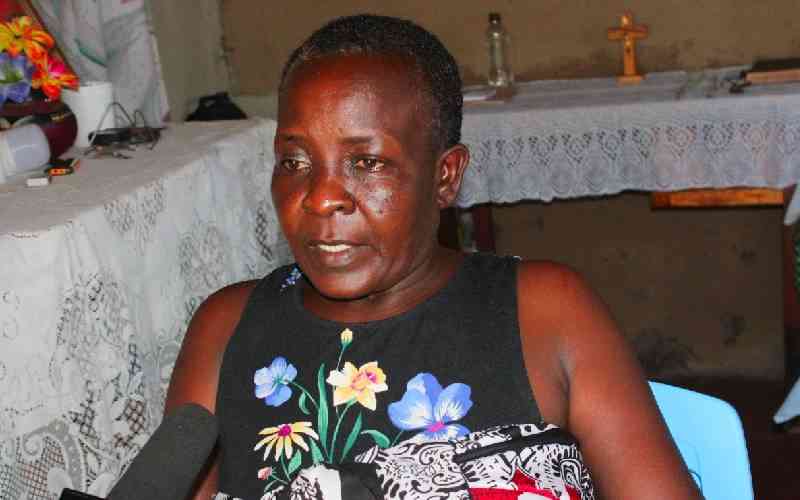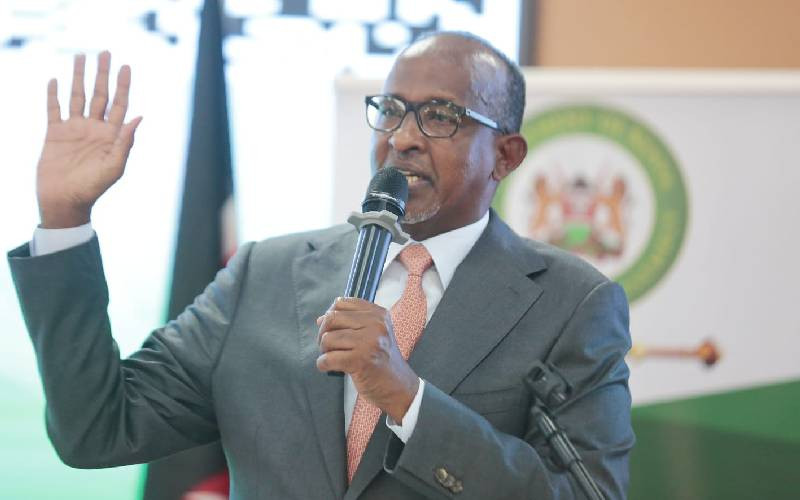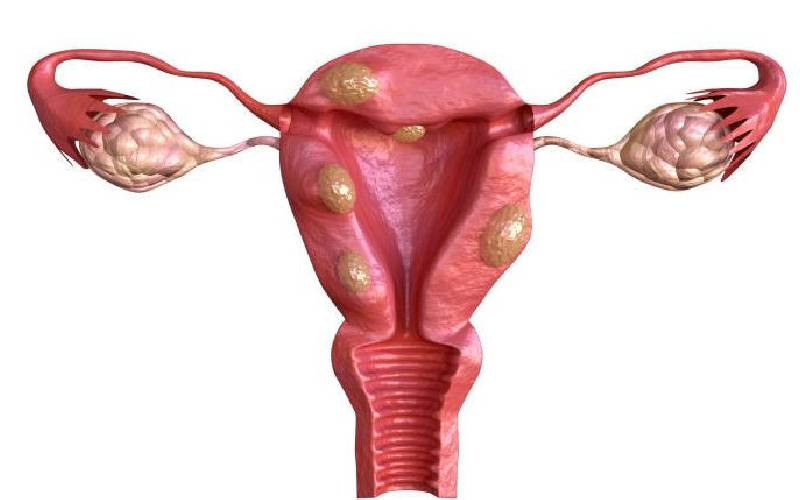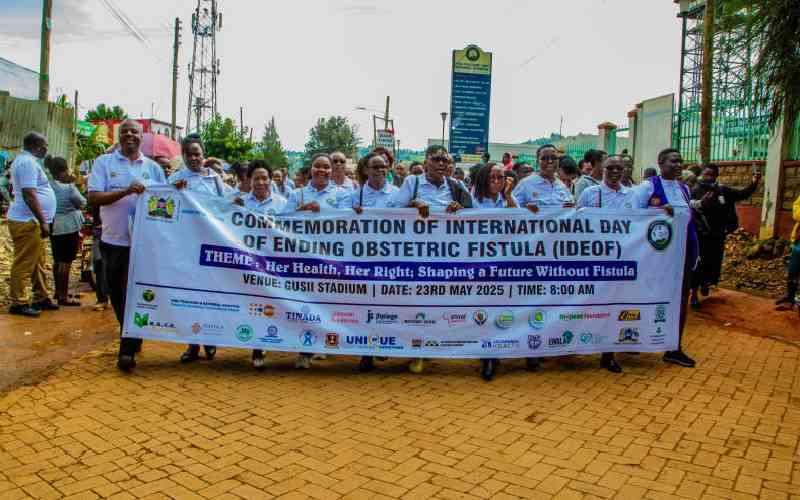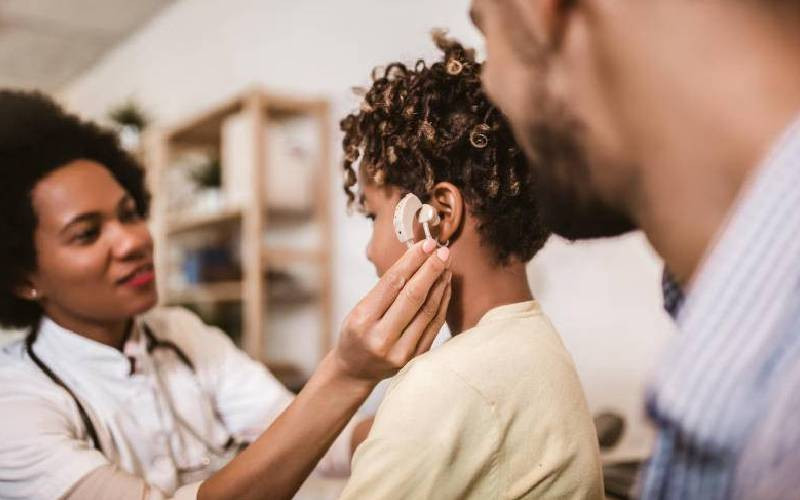
Kenya is facing a severe shortage of Ear Nose and Throat (ENT) specialists, a concern that has alarmed the medics. Out of a population exceeding 55 million, the country has only about 100 ENT surgeons. This shortage has created an accessibility crisis, leaving many counties having just one specialist, or none at all.
“In some counties, you’ll find only one ENT surgeon, while others have none,” explains Dr Aden Mahat, an ENT resident surgeon at the University of Nairobi. “Patients travel long distances from rural areas to access treatment. The scarcity of specialists is the main reason many continue to suffer in silence.”
In most county hospitals, ENT departments are either understaffed or non-existent. Patients in remote areas often rely on clinical officers or general practitioners who lack both the equipment and specialised training to manage complex ear diseases. This gap in in care means that conditions that could have been treated early become chronic, leading to serious complications such as deafness or brain infections.
One of the most common conditions treated during the Kisumu medical camp is chronic otitis media, a persistent infection of the middle ear. It presents with ear discharge, pain and reduced hearing and in advance cases, produces unpleasant a strong, unpleasant odor.
“The condition usually begins as an ear bacteria ear infection,” explains Dr Mahat. “It’s initially treated with antibiotics or ear drops, but when these fail, surgery becomes necessary. The goal is to create a safe ear, sometimes hearing improves, but the main aim is to stop the infection.”
The surgery, however, is delicate. ENT surgeons must work carefully around the facial nerve, which controls facial movement. Any complications can cause paralysis, abscesses, or even life-threatening infections that spread to the brain.
“It’s a condition that affects all age groups — children, adults and the elderly,” Dr Mahat adds. “But it’s largely ignored because few people understand it, and there are very few specialists to raise awareness.”
Even where ENT specialists are available, the lack of essential medical equipment often hampers effective treatment. ENT surgeries require advanced microscopes, endoscopes and precision instruments, tools that many county hospitals cannot afford.
“ENT surgery is very different from general surgery,” says Dr Mahat. “It demands specialised instruments and high-precision tools. Unfortunately, most hospitals don’t have this equipment and the few that do often find it too expensive to maintain.”
Dr Mahat believes both county and national governments should prioritize investment in ENT infrastructure. “The University of Nairobi is currently the only institution training ENT surgeons,” he explains. “If the government equips hospitals and supports training in other universities, we can bridge this gap much faster.”
While setting up ENT units is costly, the burden of untreated ear disease is far greater. Many Kenyans live with preventable hearing loss simply because local hospitals lack the tools for early intervention.
Operation Eardrop, the initiative that brought Dr. Aden Mahat to Kisumu, has become a beacon of hope for patients battling ear diseases. The programme brings together Kenyan and Netherlands-based doctors who travel to various hospitals across the country, conducting free surgeries and offering much-needed relief.
“This is our first time in Kisumu,” says Dr Mahat. “We’ve been operating since Monday and will be here for a week. The hospital has given us immense support, and the local surgeons have been very welcoming.”
He adds that such medical camps are not just about treatment but also skills transfer and mentorship for local health workers. “We hope these collaborations continue and expand to other regions, especially Northeastern Kenya,” he says.
“I come from Garissa and work in Wajir County, where the burden of ear diseases is equally high. I hope Operation Eardrop can also reach those areas.”
While outreach programmes offer temporary relief, many patients with hearing loss remain disadvantaged by the high cost of hearing aids. Dr Neville Okwiri, an ENT surgeon at JOOTRH, believes policy reform could change that.
“Hearing aids are still prohibitively expensive for most Kenyans,” he says. “If the government can zero-rate taxes, import duties and VAT on them, we can make these devices accessible through public hospitals. That would transform lives.”
Dr Okwiri stresses the need for prevention, noting that chronic ear infections often start as flu-related illnesses in malnourished children.
“Most bacteria that cause ear infections, such as Streptococcus pneumoniae and Haemophilus influenzae type B, have vaccines,” he says. “Prevention is always better than cure.”
 The Standard Group Plc is a multi-media organization with investments in media
platforms spanning newspaper print
operations, television, radio broadcasting, digital and online services. The
Standard Group is recognized as a
leading multi-media house in Kenya with a key influence in matters of national
and international interest.
The Standard Group Plc is a multi-media organization with investments in media
platforms spanning newspaper print
operations, television, radio broadcasting, digital and online services. The
Standard Group is recognized as a
leading multi-media house in Kenya with a key influence in matters of national
and international interest.

